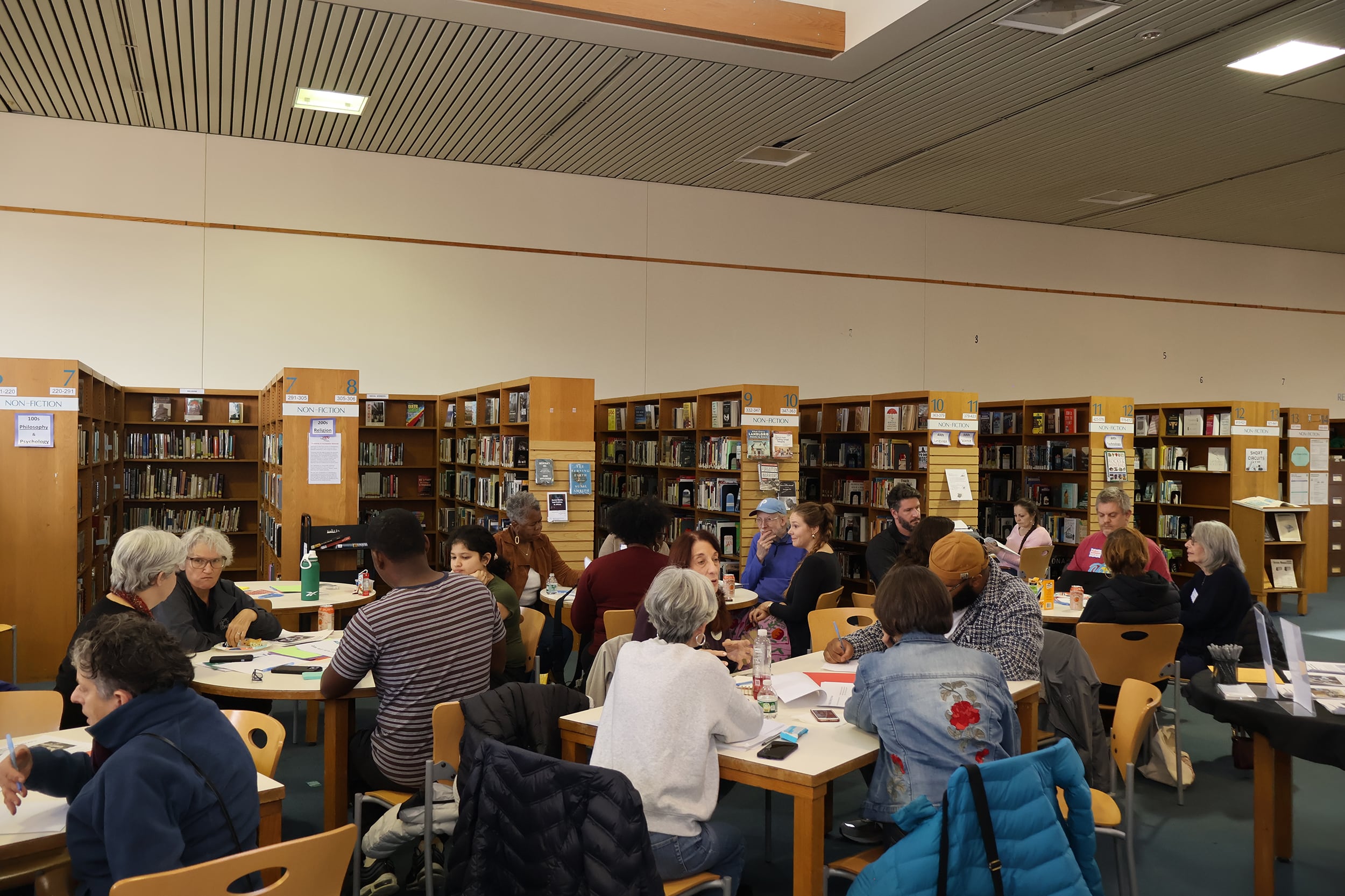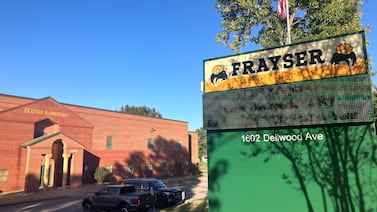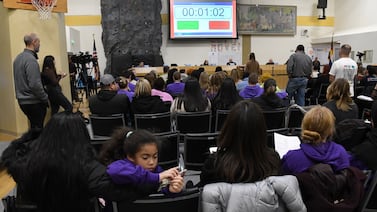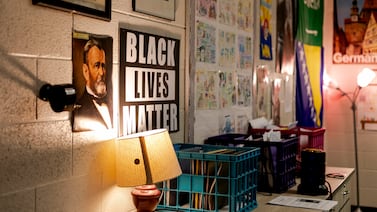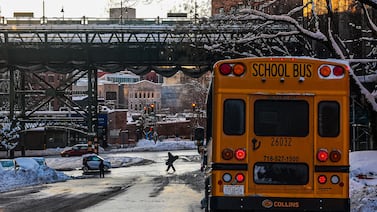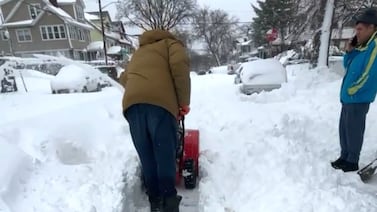Sign up for Chalkbeat Philadelphia’s free newsletter to keep up with the city’s public school system.
Philadelphia school officials say they want more feedback before they announce which schools will close in the coming years — and educators, families, and other city residents hope they plan to listen.
At an event Chalkbeat hosted in partnership with Germantown Info Hub on Saturday, people reflected on the last mass school closures in 2013, when the district shuttered 23 schools despite community protests. Many said those closures left deep scars across neighborhoods, fractured trust between residents and the district, and left neighborhoods without key community spaces.
In Germantown specifically, the district closed the nearly 100-year-old Germantown High School. That experience shows what could go wrong — and what could be improved — this time around, residents said.
School officials have promised this upcoming round of closures will be different from what happened in 2013 — in large part, they say, because robust community engagement will inform the process.
Already, the district has assembled advisory groups and hosted community engagement sessions that school leaders say will inform the facilities planning process. On Tuesday, district officials said they were delaying a long-awaited facilities plan announcement to conduct a districtwide survey to gather more feedback.
Still, some residents of Germantown and other Philly neighborhoods said on Saturday they remain skeptical about how the district will factor community feedback into its ultimate recommendations.
But, they said, if the district genuinely intends to listen, they have lots of feedback to share. Here’s what some of the more than 20 people who attended Chalkbeat and Germantown Info Hub’s event said the district should keep in mind.
Philadelphians urge district to continue meaningful community engagement
Several Germantown residents said that even though the district has made efforts to solicit feedback, it must do much more to ensure families feel like their perspectives are considered in the process.
Janice Tosto, who moved to Germantown seven years ago, said families at the schools the district wants to close “have to be front and center in all of this.” That’s why, she said, it’s essential that the district stay in touch with families at schools affected by closures.
“They need to be prepared to have conversations with people,” said Tosto. “And to check in with people to see how they can be supportive of people who are really dealing with that trauma.”
Some people said it seems like many Philadelphians still don’t know closures are coming — or if their schools will be affected.
“People need to ask, ‘Which schools are you closing in my neighborhood?” said Cecelia Thompson, a former member of the Board of Education. “Stop being sketchy with it.”
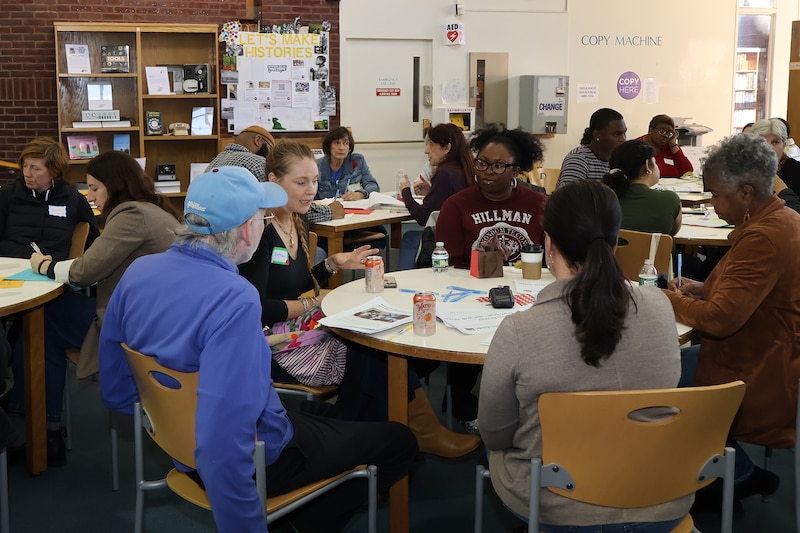
Advocates worry that even language the district is using to describe what’s happening, like the term “facilities planning process,” does not make it clear that school closures are coming.
“Nobody knows what it is,” said Ilene Poses, a member of the advocacy group Alliance for Philadelphia Public Schools, which opposes the closures. “They all think it’s going to be about making the schools environmentally better, less toxic.”
Fate of closed schools concerns many Philadelphia residents
District officials have said the aim of the process is to create better educational environments for students, with more access to programming like AP classes and extracurriculars. Superintendent Tony Watlington has said that to do so, the district needs to reduce the number of empty seats and close some schools.
But Watlington and other school officials have shared very little information about what would happen to schools after they close.
Longtime Germantown resident Jill Saull was involved in community pushback against the closure of Germantown High School in 2013. As part of the Philadelphia School Closings Photo Collective, she documented that school and Fulton Elementary to capture what the schools looked like before they shut down.
She said after the school board voted to shutter Germantown High School, she and other neighborhood residents organized to propose alternatives for what the building could become.
One idea, she said, was to turn part of the building into a small career and technical education program for hospitality and restaurant management. Another part of the building would be turned into a boutique hotel that students would help run and attract more visitors to Germantown.
At first, Saull said she remembers the school board and the developers who ultimately bought the building seemed interested in the community’s feedback and ideas. At one community meeting about the future of the school property, she said, more than 400 people showed up.
But ultimately, the developers nixed each idea from local residents. The building is now largely market-rate apartments.
“There was a moment where we did feel we came together … we were able to communicate,” said Saull. “But as the process went on, things kind of fell apart.”
At community engagement meetings over the summer, district officials said all options remain on the table for closed school buildings. But some worry the district will prioritize selling the facilities for top dollar instead of what local neighborhoods want.
Facilities planning process seems rushed, some say
Some advocates have welcomed the district’s delay for announcing the facilities plan. To them, it indicates the district is taking more time to consider what Philadelphians want from schools.
But others want the district to release a draft list of schools to close, so that Philadelphians can know what’s at stake and provide feedback that could make a difference before it’s finalized.
In 2013, the district held hearings about schools initially slated for closures and had time to come up with alternative plans. Officials ended up closing many fewer schools than the district initially proposed.
But this time around, officials appear to be front-loading community engagement, said Adam Blyweiss, a district parent and teacher who has been involved with the Stand Up for Philly Schools group, which opposes school closures. He worries the district may rush the process after it eventually releases the list of recommended schools to close.
Separately, the district needs better partnerships with external groups to make sure students who must change schools are supported, said Justin Ennis, executive director of Philadelphia Outward Bound School.
Ultimately, Ennis said the lessons from what happened in 2013 could help shape a much better process this time around — just as long as the district makes genuine progress building trust with communities and partner organizations.
“There is an opportunity to harness all of the folks in a community,” said Ennis. “So it’s not like 2013, which felt like a cold and sterile financial decision.”
Germantown Info Hub’s Rasheed Ajamu and Pryce Jamison contributed to this story, along with Sara Shahriari from Resolve Philly.
Sign up for Germantown Info Hub’s community texting project here.
Rebecca Redelmeier is a reporter at Chalkbeat Philadelphia. She writes about public schools, early childhood education, and issues that affect students, families, and educators across Philadelphia. Contact Rebecca at rredelmeier@chalkbeat.org.

